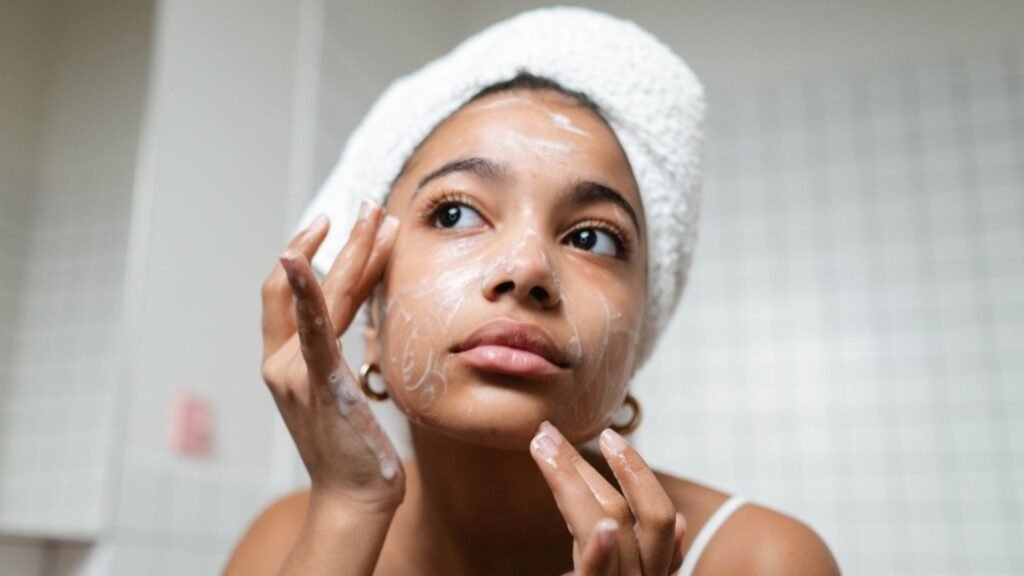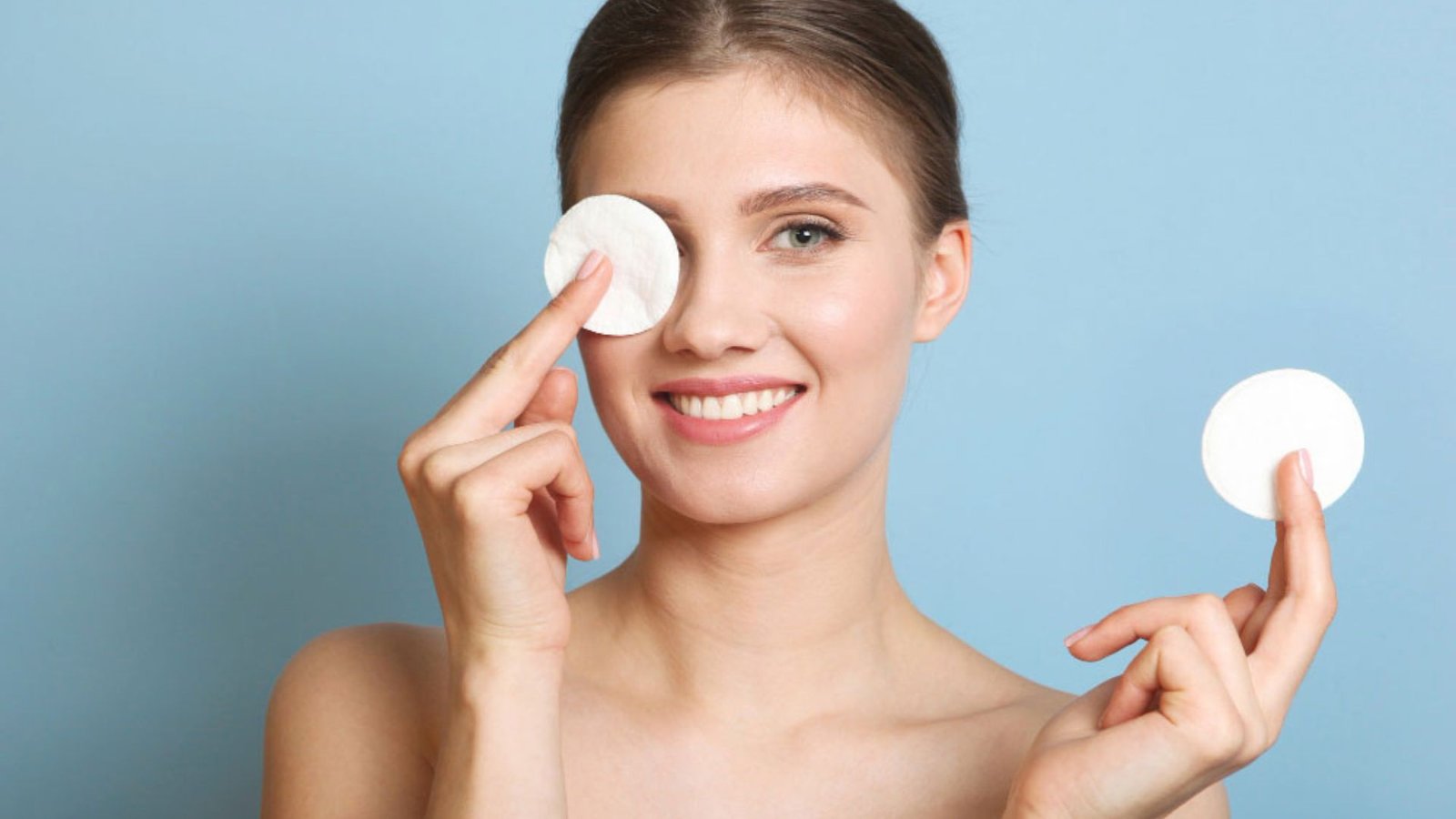Starting a skincare routine can feel overwhelming, especially with so many products and techniques available. However, creating a simple yet effective routine doesn’t have to be complicated. This guide will walk you through the essentials, helping you build a skincare routine that suits your skin type and goals.

Understand Your Skin Type
The first step to building a skincare routine is knowing your skin type. Your skin will fall into one of these categories:
- Oily: Skin produces excess oil and may appear shiny.
- Dry: Skin feels tight, flaky, or rough.
- Combination: Oily in some areas (usually the T-zone), dry in others.
- Normal: Well-balanced, not too oily or dry.
- Sensitive: Skin easily reacts to products and environmental changes.
Identifying your skin type will help you choose the right products that address your specific needs.
Basic Skincare Routine: Cleanse, Tone, Moisturize
A simple and effective skincare routine starts with three basic steps: cleansing, toning, and moisturizing.
- Cleanser: Choose a gentle cleanser that matches your skin type. Cleansing removes dirt, oil, and impurities from the skin. For beginners, it’s best to avoid harsh cleansers that can strip the skin of its natural oils.
- Toner: A toner helps balance the skin’s pH levels and preps it for better absorption of other products. If you have oily skin, a toner with salicylic acid can help control oil production. For dry skin, look for hydrating toners with ingredients like glycerin.
- Moisturizer: A good moisturizer locks in hydration and protects your skin barrier. For oily skin, opt for a lightweight, oil-free formula. Dry skin will benefit from richer creams with ingredients like hyaluronic acid or ceramides.
Exfoliation: How and When to Do It
Exfoliation is essential for removing dead skin cells and promoting cell turnover, but it should be done sparingly, especially for beginners. Over-exfoliating can irritate the skin, so start with once or twice a week.
- Chemical Exfoliants: Products with alpha hydroxy acids (AHAs) or beta hydroxy acids (BHAs) gently exfoliate the skin without the roughness of physical scrubs. They are ideal for most skin types, especially sensitive skin.
- Physical Exfoliants: These are scrubs with small, grainy particles that physically remove dead skin cells. Be cautious with physical exfoliants, as they can be too harsh for sensitive skin.
Sun Protection: Never Skip Sunscreen
Sunscreen is the most crucial part of any skincare routine. It protects your skin from harmful UV rays that can cause premature aging, hyperpigmentation, and even skin cancer.
- SPF: Choose a sunscreen with at least SPF 30 and apply it every morning, even on cloudy days. If you spend a lot of time outdoors, reapply every two hours.
Targeted Treatments: Serums and Spot Treatments
Once you’ve mastered the basic routine, you can incorporate targeted treatments to address specific skin concerns like acne, hyperpigmentation, or fine lines.
- Serums: Serums contain concentrated active ingredients that penetrate deep into the skin. For brightening, look for a vitamin C serum. For hydration, use a hyaluronic acid serum.
- Spot Treatments: If you have occasional breakouts, use a spot treatment with benzoyl peroxide or salicylic acid to target pimples without affecting the surrounding skin.
Nighttime Routine: Repair While You Sleep
At night, your skin goes into repair mode, making it the ideal time to apply treatments that help restore and rejuvenate. For your nighttime routine:
- Cleanse to remove makeup, dirt, and oil.
- Apply a hydrating serum or treatment tailored to your skin needs.
- Use a slightly richer moisturizer than your daytime one to lock in moisture.
Be Consistent and Patient
Skincare results don’t happen overnight. It can take a few weeks or even months to see noticeable changes, so it’s essential to stick with your routine. Consistency is key, and patience will reward you with healthier, glowing skin.
Conclusion
Building a skincare routine doesn’t have to be complicated. By focusing on the basics—cleansing, toning, moisturizing, and sun protection—you’ll be well on your way to healthy skin. As you get more comfortable, you can add exfoliants, serums, and other treatments to target specific concerns. Remember, the best skincare routine is the one that works for your skin type and lifestyle.




